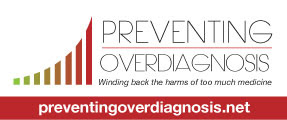The supposed rationale for providing a separate "exhibit hall" is to cordon off commercial activities from genuine medical education. Conference speakers are generally required to disclose affiliations with industry that might represent conflicts of interest (COI); for example, a speaker who works for Pfizer (maker of the popular cholesterol-lowering drug Lipitor) could hardly be expected to give unbiased recommendations regarding threshold levels for cholesterol treatment. Cynics note that because conference organizers rarely make an effort to verify the accuracy of such disclosures, many speakers fail to disclose disqualifying affiliations. Judging from a recent study published in the New England Journal of Medicine, the cynics are right.
In this study, investigators compared the COI disclosure statements of speakers at the 2008 meeting of the American Academy of Orthopaedic Surgeons with publicly reported information from manufacturers of orthopedic devices. They found that more than 20% of speakers failed to disclose payments related directly to the topic of their presentation, and fewer than half of speakers disclosed payments that were judged to be less related to the presentation topic. More than 80 percent of these payments were greater than $10,000; more than 40 percent were for more than $100,000. (By comparison, before I become a federal employee, the largest honorarium I ever received for giving a talk was $800.) Speakers were statistically more likely to disclose payments greater than $10,000 - but it's not as if $9,999 is exactly chump change!
So what do I conclude from this study? That I should never again trust an orthopedic surgeon who tries to teach me something? That I clearly chose the wrong medical specialty, if financial success was my measuring stick? I prefer to look on the bright side: at least these conflicts of interest, and the myriad ways that unscrupulous physicians and commercial interests try to game the disclosure system, are finally seeing the light of day. As President Reagan said about his policy toward arms control during the waning days of the Cold War, "Trust, but verify." That maxim should be medical education's policy, too.











